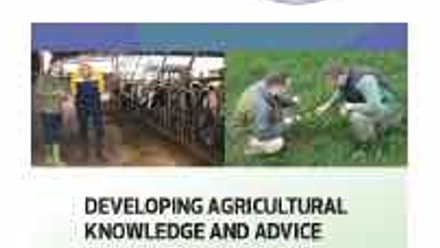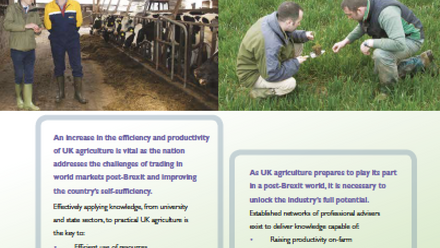Climate Change – moving towards net zero carbon
Over the next 40 years, the global food system will have to feed more people with less impact.
This will mean providing a higher quality diet whilst dealing with greater competition for land, water and energy and the economic and political pressures of globalisation as the climate changes.
Our farmers and growers will need to adapt to the changing conditions alongside reducing greenhouse gas emissions.
Greenhouse gases are an inevitable consequence of food production, and the challenge of reducing them whilst increasing food production is huge.
AIC is working across all devolved administrations to meet this challenge without compromising domestic production. In England, we are a partner working with other industry organisations to implement the Green House Gas Action Plan (GHGAP).
In Scotland, Wales and Northern Ireland we are supporting the implementation of appropriate mitigation and adaptation actions through the respective strategies.
Commitment
The Greenhouse Gas Action Plan (GHGAP) sets out how the agriculture industry in England is responding to this challenge.
It shows our commitment to playing our part in tackling climate change by reducing our greenhouse gas emissions by three million tonnes of CO2 equivalent per year from 2018-2022. The GHGAP is one of a range of initiatives that are already helping farming produce more whilst impacting less.
What are we going to do?
We aim to meet this challenge without compromising domestic production. It's too simple a solution to produce less and import more. This simply "exports" our emissions to other parts of the world.
So our Action Plan focuses on how farmers, across all sectors and farming systems, can become more efficient to help reduce greenhouse gas emissions and make cost savings per unit of production.
Agriculture can also make a big contribution to mitigating climate change by storing carbon in soils and vegetation and by generating renewable energy. We are determined to show that farming is part of the solution.
How are we going to do this?
We're going to make the most of what's already in place and what new science tells us, so that we get better at what we do. We're going to use trusted routes of influence to help farmers and land managers carry out the GHGAP's priority actions - by improving their use of energy and nutrients, their management of crops and livestock and reducing their own carbon footprint.
This is an unprecedented partnership of sixteen organisations (and the number is likely to grow) representing the breadth of the agricultural industry in England.
We're going to focus on how we can work better together, with Government and with the food supply chain. We will regularly report on progress so that farmers and land managers can be confident that their changes in farm practice are leading to lower emissions.
Reporting on progress
- Media Release - GHGAP report shows world leaders how English agriculture can reduce emissions
- Progress report and delivery strategy from 2016
Substantial emissions reduction from:
Soils
The results of a major UK research project on ‘Minimising Nitrous Oxide’ (MIN-NO) have been announced showing emissions due to nitrogen fertiliser use on UK arable land, to be less than half the level previously estimated.
Fertiliser manufacture
Sourcing of nitrogen fertilisers from production facilities which are modified to abate nitrous oxide makes a substantial reduction in the Greenhouse Gas (GHG) footprint of the final marketed product whether it be chicken, cooking oil, whisky or a biofuel product.
Choosing fertilisers with the lowest carbon footprint leads to a reduction in the greenhouse gas footprint. For example, bread can be reduced by 7%, bioethanol from wheat by 15% and biodiesel from oilseed rape by 16%.
Devolved administrations
The implementation of adaptation and mitigation actions in the devolved administrations differs in each region. Details of the relevant plans and strategies can be found by following the below links.




